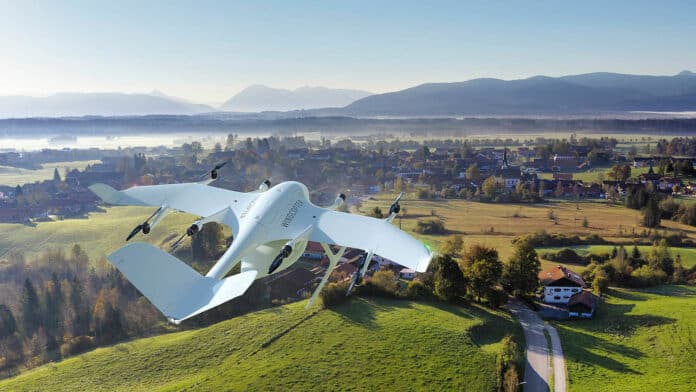The delivery drone manufacturer and operator Wingcopter announced recently that it teamed up with the Frankfurt University of Applied Sciences (Frankfurt UAS) to test the potential of on-demand transport of consumer goods to improve local supply in rural communities. The project, called “Drone Cargo Bike Express Delivery,” is funded with almost €500,000 by the German Federal Ministry of Digital and Transport; the funding certificates were officially handed over to the project partners in Berlin.
As a part of the project, the company will use its delivery drones to transport everyday goods from a medium-sized center to surrounding villages. The purpose of the project is to realize the fast and reliable delivery of groceries and other consumer goods to rural areas and thus improve the local supply of citizens. Once the drone reaches the location, the packages will be delivered to end customers by cargo e-bikes.
The data collected from this project will be evaluated from an economic and environmental point of view. If everything goes according to plan, a sustainable and easily scalable business model will be developed. The company plans to start the first flights within the project next spring in the south of Hesse in Germany.
“In many rural areas today, supply is severely limited due to the closure of smaller, local stores,” said Professor Dr. Kai-Oliver Schocke, Director of the Frankfurt UAS Research Lab for Urban Transport. “We expect that the use of delivery drones will improve the local supply in rural areas again. From a socioeconomic perspective, this type of delivery is especially beneficial to citizens with limited mobility, such as the elderly or those without their own cars. In addition, the alternative transport option can result in economic and environmental benefits for the partners involved.”
The project is the first of its kind in Germany and is funded by the Federal Ministry of Digital and Transport as part of the “Innovative Air Mobility” funding program. It is scheduled to run for 12 months.
